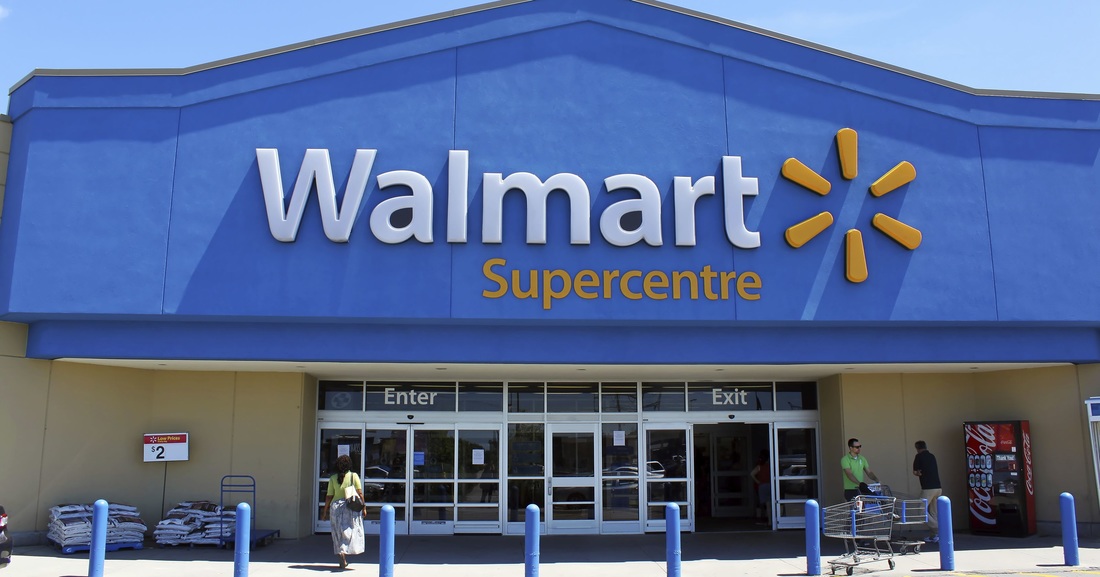|
HALIFAX, N.S. — Food politics is usually a game of nuances. But in the battle between Walmart and Visa, nuances are few and far between.
Also read, Wal-Mart sets environmental plan as people seek green items. Visa is offering $10 to anyone in Manitoba who buys groceries using their Visa card. Walmart stopped accepting Visa as of Oct. 24 in the province. So the credit card company wants to hit the retail giant where it hurts most: food retailing. Walmart intends to become the No. 1 food retailer in Canada, as it is in the U.S. But the Canadian food distribution landscape is much different. Just three major companies feed most Canadians: Loblaws, Sobeys and Metro. So this may take a while. Walmart and Costco have made great strides in the marketplace in recent years. The companies have a combined market share of nearly 20 per cent. Walmart capitalized on Target's abrupt retreat from Canada to strengthen, particularly in Quebec and British Columbia. Nurturing food shopping habits is at the core of Walmart's insurgence. In fact, it's successfully converting same-store sales into more food purchases. Walmart works because it uses analytics to support of its impressive logistical capacity, making margins much easier to control. That's where Visa comes in. Earlier this year, Walmart vowed to stop accepting Visa at its more than 400 Canadian outlets because it believed Visa's transaction fees were too high. At last report, however, Walmart has only implemented its Visa ban in Manitoba and Thunder Bay, Ont., and sales results in the wake of the ban have been discouraging. Nevertheless, Walmart apparently intends to continue to bully the credit card company. Visa, meanwhile, is casting itself as a protector of consumers and is encouraging them to support retailers who accept Visa. It doesn't mention Walmart in its Manitoba campaign, but we all know what this is about. And Visa picked food, of all products, as its campaign focus. That's telling. Visa, too, is a data-driven enterprise. And it needs the vast market information from card use at Walmart stores to get a comprehensive sense of the marketplace. Walmart's boycott of Visa hurts the credit card company's bottom line and denies it access to massive market data that's critical to its ability to operate. Walmart has enough power to re-channel how consumers use credit to buy almost anything. But converting consumers to other credit sources will take time, so Walmart is going slow in pushing Visa out of its stores. Banks, which are heavily invested in the credit card business, stand to lose millions if these two companies part ways. That's not a scenario Visa wants to think about. Worse, if Walmart wins and gets to pay lower transaction fees to credit card suppliers, Loblaws, Sobeys and Metro will likely ask for similar fee reductions. Other smaller retailers will follow suit. So it's not surprising to see how Visa has responded to Walmart's boycott, since the stakes are huge. Food industry battles aren't new. But Visa bribing consumers so they make food purchases anywhere but at Walmart is likely a first in Canada. And certainly Walmart is not without fault. But the company has been successful because it understands the data game. The end result could be a change in how credit is used to buy food and how grocers support customers looking for more loyalty rewards. Walmart is making the normally obscure credit world very public. And Visa is making a political statement. Consumers who use credit cards to purchase food either want extra goodies beyond what retailers provide or, regrettably, lack other financial options. Visa is desperately trying to use both circumstances to its advantage. Certainly the battle lacks subtlety. That probably means the company with the most clout - Walmart - will be the winner. SOURCE Sylvain Charlebois,Troy Media, Battlefords News-Optimist
0 Comments
Leave a Reply. |
Advertisement
News & Updates
Stay informed with the latest news around foodservice, agriculture and other related food news. Advertisement Opportunities
|


 RSS Feed
RSS Feed


